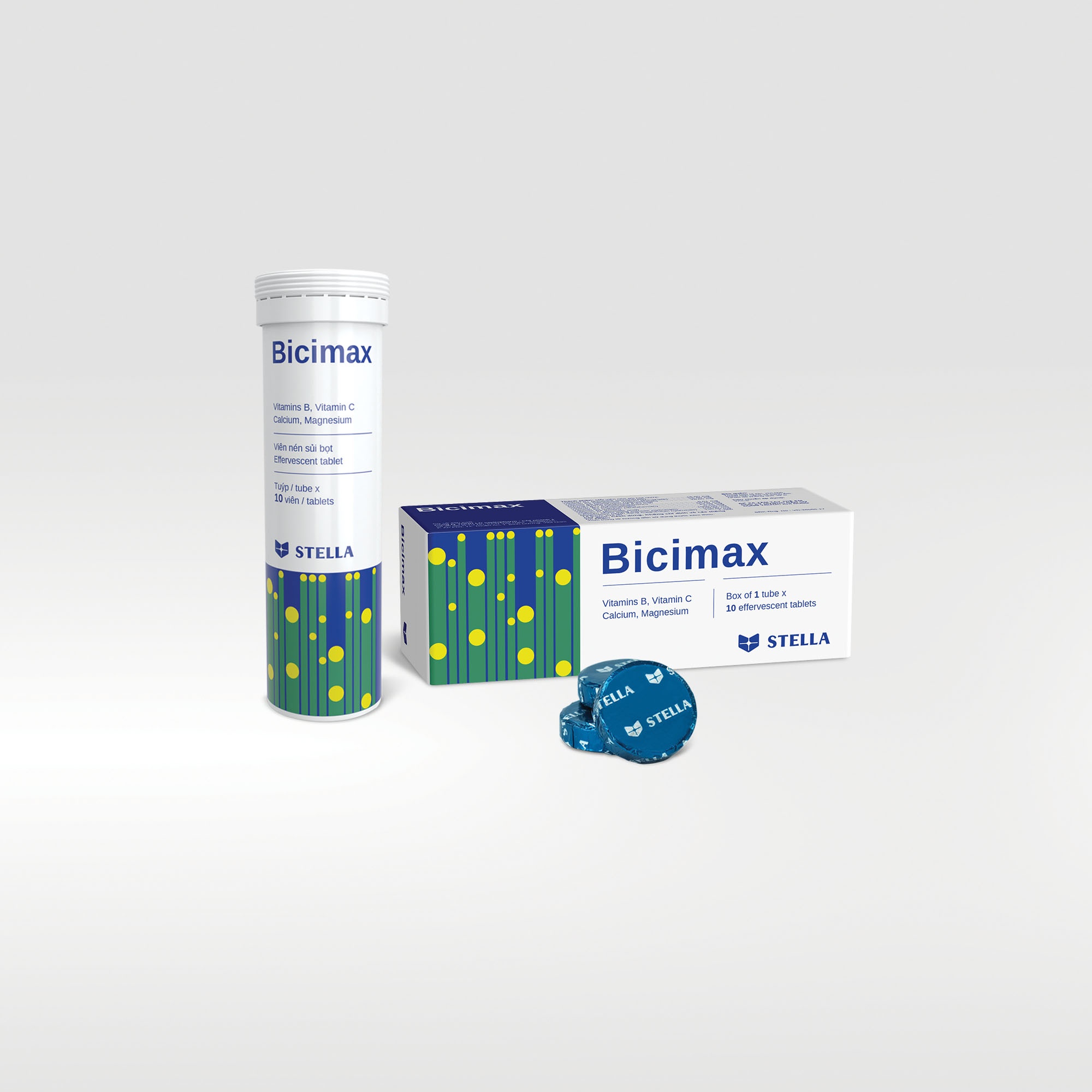Bicimax OTC
Bicimax is used for supplementation of deficiencies of the vitamins B complex, vitamin C, calcium and magnesium: e.g., prolonged stress, prolonged infection and fever, intestinal diseases, gastrectomy, alcohol abuse, …
| Pack size | Box of 01 tube of 10 tablets. Box of 08 tablets, 16 tablets, 20 tablets (02, 04, 05 strips x 04 tablets) |
| Shelf-life | 36 months |
| Composition | Vitamin B Complex, Vitamin C, Calcium and Magnesium |
| Dosage forms and strengths | Effervescent tablet: Vitamin B Complex, Vitamin C 1000 mg, Calcium 100 mg, Magnesium 100 mg, ... |
Product code :








